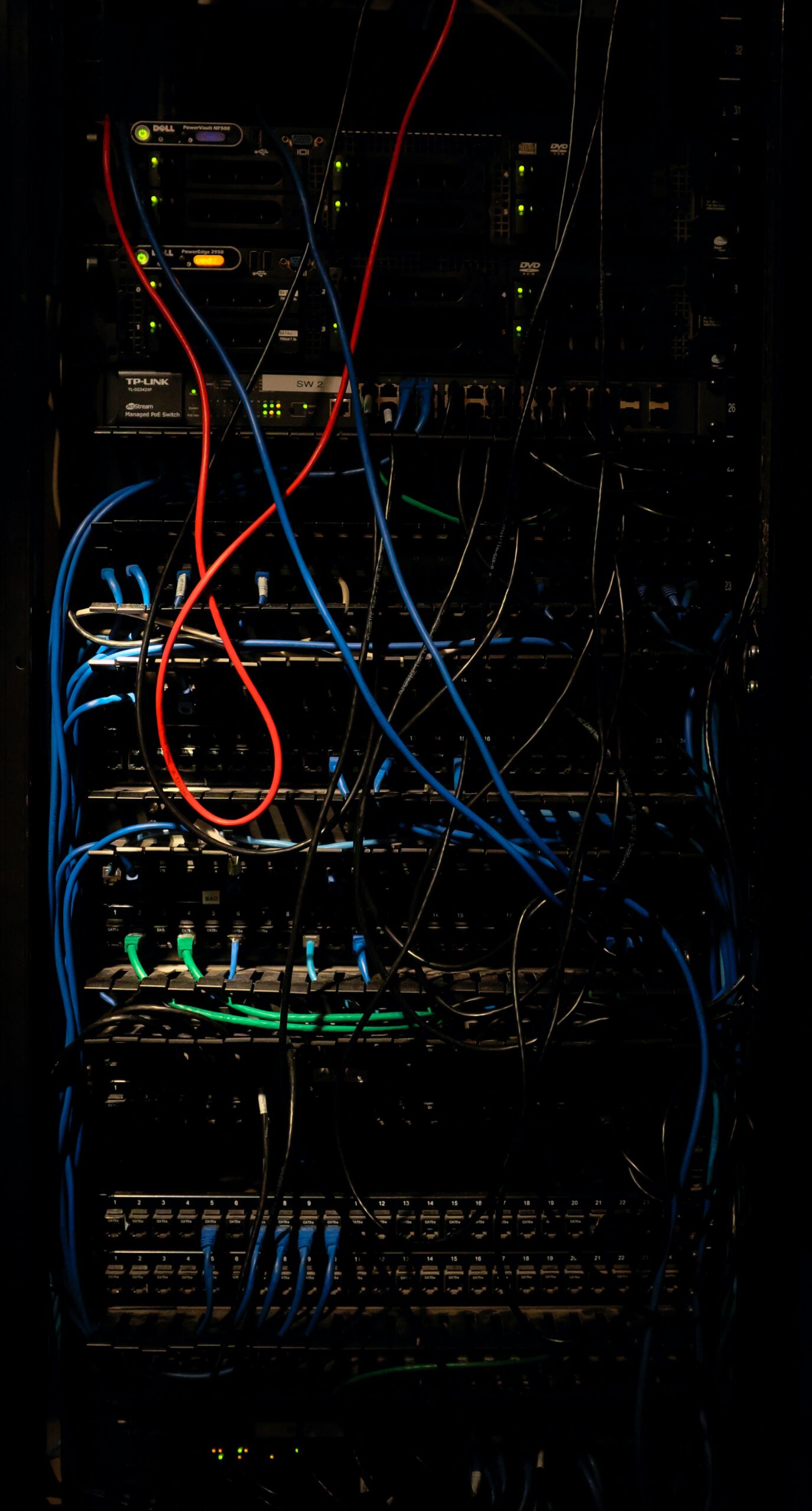
Understanding the Connection Between Web Hosting and Website Performance
When it comes to optimizing your website’s performance and search engine rankings, the choice of web hosting can play a pivotal role. The quality of your hosting service impacts everything from site speed to uptime reliability, which in turn affects user experience and SEO. In this blog post, we delve into how different aspects of web hosting influence site speed and SEO, providing key insights for professionals looking to maximize their website’s potential.
The Impact of Hosting on Site Speed
The choice of a web hosting service is crucial in determining the speed at which your website loads for visitors. Web hosting servers with better hardware specifications and more efficient data management capabilities can significantly decrease page load times. Factors such as CPU performance, RAM allocation, and disk storage type (SSD vs. HDD) play pivotal roles in how quickly server resources are allocated to loading your website. Furthermore, the physical location of these servers relative to your user base can affect latency; servers closer to your users typically result in faster load times. This is especially relevant when considering global or geographically distributed audiences.
Hosting Configuration and SEO Performance
Search engines like Google measure and rank websites based on numerous criteria, one of which is page load speed. Websites that load quickly are perceived as more reliable and user-friendly, thus receiving a higher SEO ranking. Moreover, sophisticated hosting solutions that offer advanced caching, automatic content delivery network (CDN) integration, and optimized database configurations can further enhance search engine optimization efforts. These technical adjustments enable quicker data retrieval and page rendering, which not only improves user experience but also boosts crawl efficiency for search engine bots.
Reliability and Uptime Guarantees
Consistent website availability is another critical factor influenced by the quality of web hosting. High uptime percentages ensure that a website is available around the clock, avoiding potential downtimes that could lead to significant drops in SEO rankings and lost traffic. Many premium hosts offer uptime guarantees of 99.9% or higher, backed by redundant infrastructure and failover systems that minimize the risk of downtime. This reliability allows businesses to maintain their online presence effectively and ensures that search engine crawlers can access the site at any time, thereby supporting continuous SEO performance.

Exploring the Role of Server Location and Load Times on SEO
Impact of Server Location on Website Latency
The geographical location of your website’s server plays a crucial role in loading times, particularly for global audiences. When a server is physically closer to a user, the data has less distance to travel, resulting in faster load times. For international websites, utilizing a Content Delivery Network (CDN) can markedly decrease latency by serving content from nodes closest to the user’s location. This not only improves user experience but also positively affects SEO rankings. Search engines prioritize websites that provide faster responses to user requests, acknowledging that speed enhances user satisfaction.
Choosing the Right Web Hosting Provider
The performance characteristics of a hosting provider such as uptime reliability, server speed, and resource allocation directly influence the speed of a website. High-quality web hosting solutions offer optimized server configurations tailored for specific platforms like WordPress or e-commerce systems, which can significantly improve load times. Additionally, advanced features like SSD storage, caching solutions, and dedicated resources can further enhance site performance. For SEO experts and web developers, choosing a provider that aligns with technical requirements and target demographics is essential for optimizing both site speed and search engine rankings.
Connection Between Load Times and Search Rankings
Google and other search engines use page speed as a ranking factor in their algorithms. Faster websites provide a better user experience, leading to increased dwell time, lower bounce rates, and ultimately, higher page rankings. Furthermore, as mobile usage continues to grow, the importance of fast-loading websites becomes even more critical. Mobile searches often occur on less stable network connections, making optimal performance a key factor for mobile SEO. By ensuring that your hosting service provides quick loading times, you enhance the likelihood of achieving and maintaining top search engine positions, driving more organic traffic to your site.

Web Hosting Features That Directly Affect SEO Rankings
Influence of Server Performance on Page Load Speed
The performance of the server hosting your website plays a pivotal role in how quickly your pages load. Web hosting servers with optimized hardware, such as solid-state drives (SSDs) and adequate RAM, can process requests faster. This speed enhancement is crucial since Google has confirmed that page speed is a ranking factor for both desktop and mobile indexes. When a site responds and loads quickly, it improves user engagement and satisfaction rates, which are key metrics that search engines use to rank sites. Additionally, fast-loading websites are less likely to be penalized by Google’s algorithms, which can harshly judge slow-loading sites.
Impact of Uptime on SEO
Uptime—how often your website is up and accessible—is directly influenced by the reliability of the web host. Frequent downtimes can severely harm your SEO efforts. Search engines aim to provide users with the best possible results, and if your site is often inaccessible when search engines try to visit, it could lead to de-indexing or lower rankings. Therefore, choosing a hosting provider with high uptime guarantees is critical. Reliable hosts use various technologies and redundant systems to ensure servers remain operational, effectively minimizing potential SEO disruptions.
Geographical Location of Servers and SEO
The physical location of the servers where your website is hosted can also affect SEO through site speed variation for different users based on their geographic location. Search engines consider the server’s location as a factor in determining the relevancy of a site to a user’s search query, particularly for local search results. Hosting your site on servers close to your target audience can reduce latency, improve load times, and thus, enhance overall user experience and SEO scores. Selecting a hosting provider with multiple data centers around the globe can be a strategic move for ensuring better coverage and improved SEO outcomes.
Case Studies: Comparative Analysis of Hosting Solutions and SEO Outcomes
Impact of Hosting on Page Load Speeds
The correlation between web hosting and page load speed is profound and well-documented. Fast loading times are crucial for maintaining user engagement, with studies showing that a delay of even a few seconds can significantly increase bounce rates. High-quality hosting providers invest in robust infrastructure such as SSDs (Solid State Drives) and utilize advanced data caching techniques to enhance server response times. This directly influences how quickly content is delivered to users, which is a key factor in SEO performance. Moreover, the geographical location of servers can affect latency; hence, selecting a hosting service with data centers close to your target audience can significantly minimize load times.
Server Reliability and SEO Ranking
A website’s uptime is closely tied to its host’s reliability. Search engines favor websites that are consistently available, as frequent downtimes can harm user experience and thus, negatively impact SEO rankings. High-quality hosts offer high uptime guarantees backed by reliable infrastructure, including redundant hardware and network connections to mitigate potential failures. Additionally, better hosting solutions come with enhanced security features such as automatic backups and advanced firewalls, which protect against SEO blacklisting due to malware and other security vulnerabilities.
Advanced Hosting Features Supporting SEO
SEO is not just about keywords and content; the technical setup provided by a host can also play a significant role. For instance, hosting solutions that support HTTP/2 and IPv6 can provide improved performance over those that do not. The adoption of HTTP/2 allows for faster data transmission by supporting multiplexing and server push techniques, which are beneficial for handling multiple requests more efficiently. Furthermore, integration with content delivery networks (CDNs) and effective management tools like cPanel for configuring HTTPS can further enhance SEO capabilities by improving security and data handling efficiencies.

Best Practices in Choosing a Web Host for Optimal SEO and Speed
Impact of Hosting on Site Load Times
Choosing the right web hosting service is crucial for enhancing site speed, which is a significant factor in both user experience and SEO rankings. A fast-loading website not only reduces bounce rates but also encourages visitors to engage more deeply with the content. The type of server (shared, VPS, dedicated), its hardware specifications, and its configuration directly impacts the loading times of a website. High-quality hosts invest in modern, high-speed servers and optimize their configurations to handle requests more efficiently, effectively boosting the speed at which web pages are delivered to the user.
Hosting Location and SEO Relevance
The physical location of web servers is another important aspect impacting SEO. Servers located closer to a website’s target audience can deliver content faster due to reduced latency. Additionally, local IP addresses can be beneficial for SEO as search engines like Google often prioritize locality in their algorithms to provide more relevant search results. Therefore, selecting a hosting provider with data centers near your primary audience can enhance search engine visibility and improve overall site performance.
Reliability and Uptime Guarantees
Uptime is a critical metric for any online business, as frequent downtime can harm a website’s credibility and SEO ranking. Search engines aim to direct users to websites that provide a reliable and effective user experience, and frequent outages can lead to poor search rankings. High-quality hosting services offer strong uptime guarantees backed by robust infrastructure and disaster recovery plans. This not only ensures consistent accessibility but also safeguards against potential penalties from search engines due to site unavailability.
Maximizing SEO through Strategic Hosting Choices
Choosing the right web hosting service is crucial for ensuring optimal website performance and achieving high search engine rankings. By understanding the impact of hosting on site speed, reliability, and server location, you can make informed decisions that enhance your SEO efforts. Invest in a quality hosting provider with advanced features and high uptime guarantees to provide the best user experience and improve your site’s visibility on search engines.
Frequently Asked Questions about Web Hosting and SEO
Navigating the complexities of web hosting and its impact on SEO can be challenging. To help you make informed decisions, we’ve compiled answers to some of the most frequently asked questions on this topic. Understanding these key points will enable you to choose the best hosting solution for your needs and enhance your website’s performance and search engine rankings.
How does web hosting affect SEO?
Web hosting affects SEO through site speed, uptime, and server location. Faster load times and higher reliability improve user experience, which search engines favor.
What type of hosting is best for SEO?
Dedicated and VPS hosting typically offer better performance and reliability than shared hosting, making them preferable for SEO. They provide faster load times and higher uptime guarantees.
Why is server location important for SEO?
Server location affects latency; servers closer to your audience reduce load times. Search engines also consider server location when delivering local search results, making it an important factor for SEO.
How do uptime guarantees influence SEO?
High uptime guarantees ensure your website is consistently available, preventing potential drops in SEO rankings due to site unavailability. Reliable hosts minimize downtime, supporting continuous SEO performance.
What advanced hosting features benefit SEO?
Features such as SSD storage, HTTP/2 support, CDN integration, and advanced caching enhance site speed and security, positively impacting SEO. These features improve user experience and search engine rankings.
Enhance Your Website's Performance with Top-Tier Hosting
Ready to take your website’s performance to the next level? Choose a web hosting provider that aligns with your technical needs and SEO goals. Investing in high-quality hosting services can significantly boost your site’s speed, reliability, and search engine rankings. Don’t wait—upgrade your hosting solution today and watch your online presence soar!

